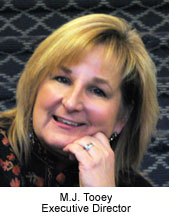
It’s time for a welcome break from my periodic diatribes about the HS/HSL not having enough money (we don’t), or enough resources (we don’t) or enough staff (we don’t). This issue of the newsletter focuses on the many resources we have that don’t cost any money; are easily accessible, quality resources; and are loved by library staff for their ease of use requiring little or no intervention on their part.
The web has enabled federal agencies, non-profit organizations and educational institutions to transform print information into digitally accessible resources. These same organizations have also used the power of the Internet to create new and powerful products linking visuals and sound and printed information and reaching a wide range of audiences. Resources such as ToxTown (see below), MedlinePlus (consumer health information), and even PubMed have evolved into multifaceted information tools.
Librarians at the HS/HSL add value to these resources by identifying and selecting them, vetting them and making them accessible in an organized way to our users. We even provide training on many of them. Take a look at the e-Resources section of our web site and you will see where we have aggregated resources by discipline or subject to bring the best information together. Increasingly we are even creating new products such as HealthyMe@UMB, Maryland Health → Go Local, and our subject and discipline lists.
Although these resources do not substitute for the journals, databases and books needed by our campus community, they certainly enhance and enrich the depth of information we can offer. In many cases, the webifying of governmental resources has saved us money as we no longer have to buy as many indexes and or as much statistical information. By collecting these resources into useful collections, we bring users a fuller set of tools to support their education, research and service missions.







